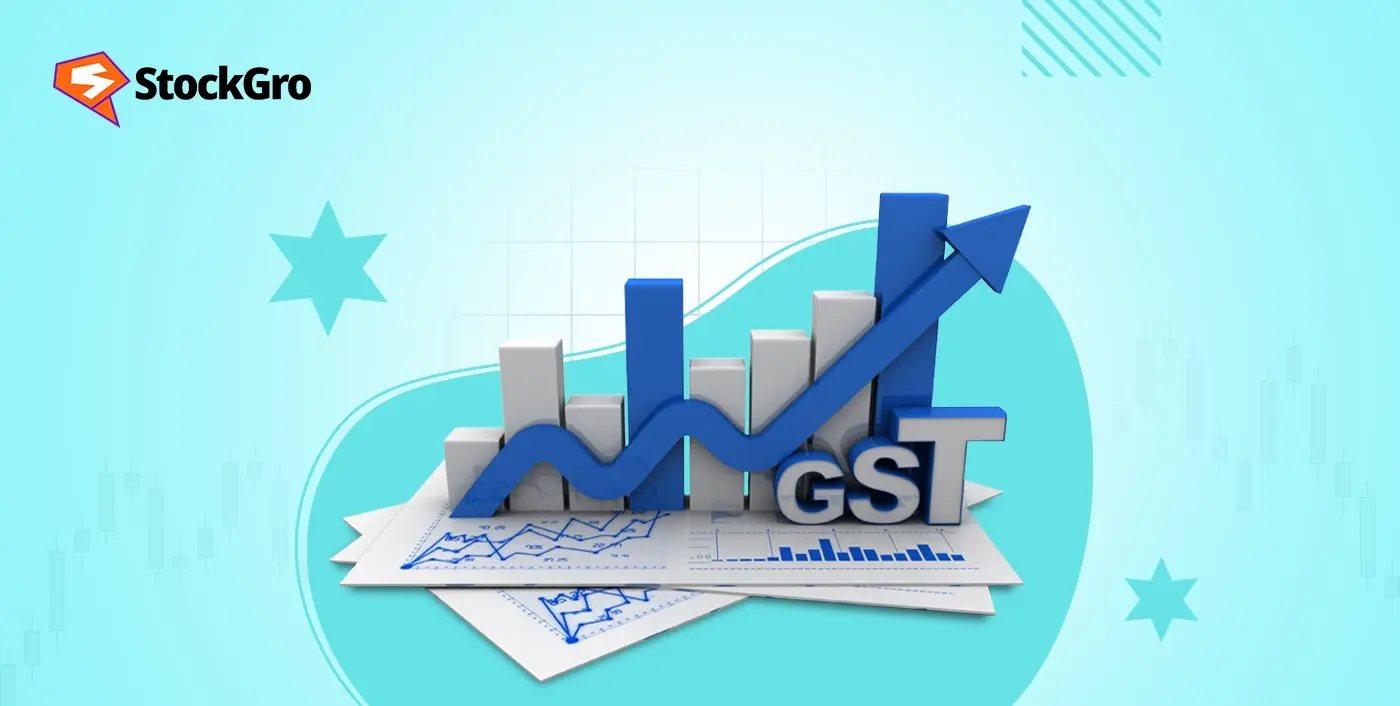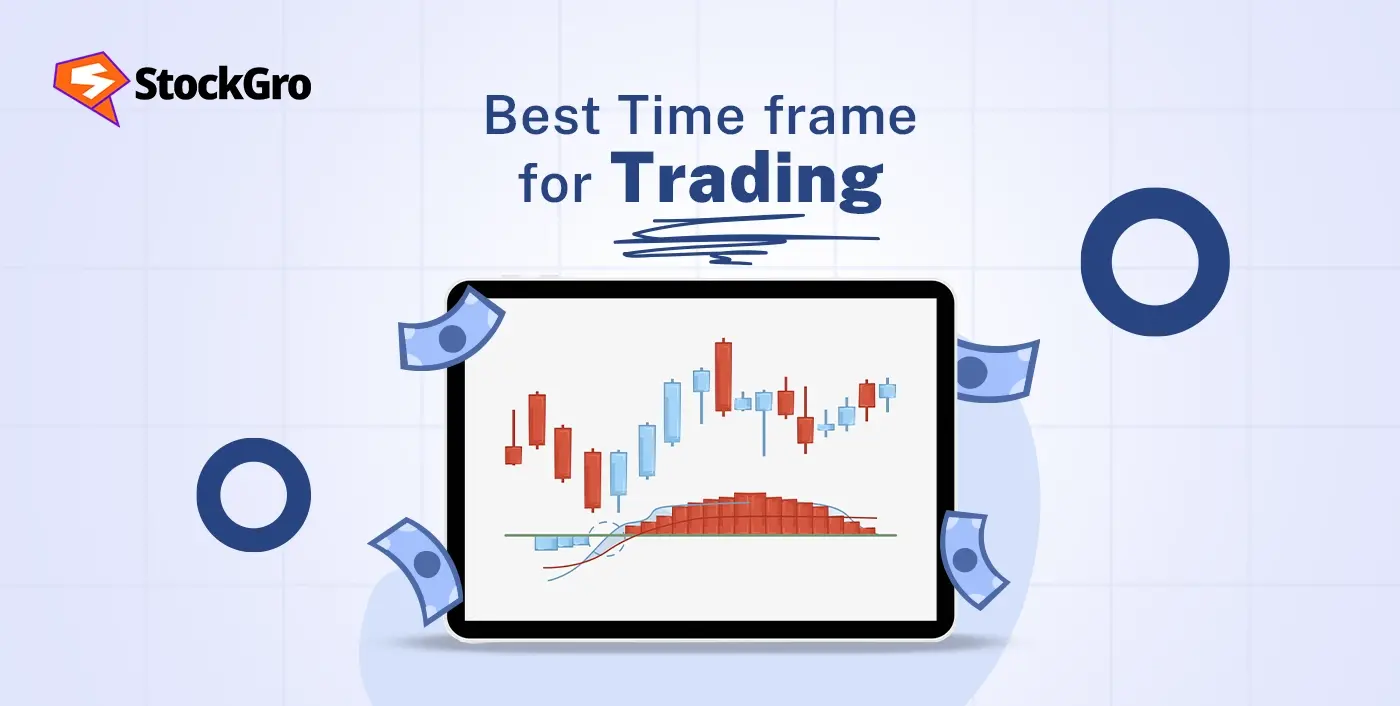
Intraday trading is all about speed, strategy, and precision but have you ever paused to consider the hidden costs behind every click? One such cost is GST for intraday trading. While profits may grab attention, it’s the silent charges, like brokerage and transaction fees that quietly attract Goods and Services Tax (GST). This tax doesn’t touch gains but applies to the services that make your trades possible. Over time, these micro-costs can affect your net returns. In this blog, we discuss in detail how GST applies and what it really means for active traders.
How GST is Calculated in Intraday Trading
The Goods and Services Tax (GST) is an indirect tax structure that applies to most transactions involving goods or services in India. In intraday trading, GST does not apply to the profits or losses from trades. This is because, under the GST Act, securities are explicitly excluded from the definitions of both goods and services. As a result, buying and selling shares even within the same day is not considered a “supply” under GST law.
However, GST is very much applicable to the services offered by the broker. Charges such as brokerage fees, and transaction fees are treated as taxable services and attract GST accordingly.
With effect from July 1st, 2017, the value of all intraday transactions is subject to 18% GST (brokerage plus transaction expenses).
So:
GST = 18% of (Brokerage + Transaction Charges)
So, if you pay ₹100 in total service fees, you’ll pay ₹18 extra as GST.
The broker collects this amount and pays it to the government. This applies whether you’re trading in stocks, F&O, commodities, or currencies.
Examples: GST Components in a Trade
Let’s take a simple example to understand how GST affects your trading bill.
Suppose you buy and sell 100 shares of ABC Ltd. at ₹150 each. Your total trade value is ₹15,000.
Here are the typical charges applied:
- Brokerage: ₹10
- Transaction Charges: ₹5
- SEBI Charges: ₹0.03 (₹15,000 × 0.0001% on both buy and sell)
GST is calculated on brokerage + transaction charges only:
Total = ₹10 + ₹5 = ₹15
GST @18% on ₹15= ₹2.70
So, your final bill will include:
- ₹15 as service charges
- ₹2.70 as GST on those charges
- ₹0.03 as SEBI fee (not included in GST)
Even though these charges seem small, for active intraday traders, they can add up over time and impact overall returns.
Is GST Charged on Profit or Only on Charges?
As discussed in the earlier sections, GST does not apply to the profit or loss you earn from intraday trades. But it’s important to understand why.
While GST focuses on services and the costs involved in trade execution, the income you make from intraday trading is handled under a completely different tax system, the Income Tax Act. Specifically, such income is classified as speculative business income, which means it’s taxable as part of your regular income, not under GST.
So, while GST covers the service fees charged by brokers, the profit itself falls under income tax rules, not indirect tax.
This distinction matters when calculating your overall trading costs versus taxable earnings.
Who Needs to Register for GST in Trading?
In order to understand tax on intraday trading, it’s also important to understand when GST registration may be required. The need for registration depends on the type of activity and the nature of income, not on trading profits themselves. Here are some key points:
- Intraday trading alone does not require GST registration, as trading in securities is excluded from the scope of GST act.
- Registration may be required if a person is involved in offering any taxable services related to the markets, such as:
- Investment advisory
- Portfolio or fund management
- Training or consultancy
- GST registration thresholds apply based on aggregate turnover from such services:
- ₹20 lakh per financial year (most states)
- ₹10 lakh in special category states
- Stockbrokers, sub-brokers, and intermediaries providing chargeable services fall under the purview of GST once these thresholds are crossed.
How to View or Track GST Paid on Trades
For people trading regularly, especially in the context of GST for intraday trading, it may be useful to know where and how to view the GST charged on each transaction. Here are some common ways this information is made available:
- Contract Notes
Each trade typically comes with a contract note issued by the broker. This note includes a breakdown of charges such as brokerage, transaction fees, and the GST applied on those services.
- Broker Platforms
Most brokers offer online platforms or mobile apps where users can access detailed account activity. This includes daily or monthly statements that often reflect the GST charged on each transaction.
- GST Invoices or Tax Statements
Some brokers provide downloadable GST-specific invoices or tax reports within their platform. These can usually be found under sections like “Reports” or “Downloads.”
- Consolidated Summaries
A few brokers may also issue periodic summaries that combine all service-related charges, helping users see the total GST for intraday trading across a chosen time period.
Tips to Minimize Overall Trading Costs
In intraday trading, charges such as brokerage fees, transaction charges, securities transaction tax, GST apply to each trade. These costs can build up over time and impact total trading expenses. Here are a few factors that may affect trading costs:
- Choosing a stockbroker that offers lower brokerage fees or zero-brokerage plans for certain trades can reduce direct costs.
- Placing a high number of trades in a single day may lead to higher cumulative charges, as each transaction attracts fees.
- Some platforms may include additional or less visible charges apart from standard fees, which can be found in detailed statements.
- Avoiding unnecessary trades by planning trade entries and exits carefully may help reduce avoidable costs.
Conclusion
GST for intraday trading is applicable only on service-related charges such as brokerage and transaction fees, not on trading profits. While each individual charge may appear minor, they can accumulate over time. Understanding the structure and application of GST helps provide clarity on the overall cost components involved in intraday trading activities.
FAQs
GST is not directly charged on the value of shares bought or sold in delivery trading, but it is applicable to the brokerage and related service fees charged by brokers during such transactions. The government levies 18% GST on the brokerage, SEBI charges, and transaction-related services, not on the transaction value itself. Thus, while buying or selling deliveries, investors pay GST on the service part, not on the shares.
Salaried individuals trading in their personal capacity generally cannot claim a GST refund for GST paid on brokerage and transaction charges, as GST input credits are available only to those registered under GST for business purposes. Since individual investors typically do not trade as a registered business, any GST paid becomes a cost rather than a refundable credit. The GST refund facility mainly benefits entities trading as a business.
GST is not directly reflected in the profit and loss (P&L) figures for intraday trades, but it appears as part of the breakdown of charges on statements from most brokers. The reported P&L focuses on buy and sell prices, while GST, charged on brokerage and service fees, is considered an expense deducted from the overall account balance. The net profit after accounting for all fees will incorporate any GST paid.
Yes, all registered brokers in India are required to charge GST at the prevailing rate (currently 18%) on brokerage and service fees they receive for facilitating trades. This is mandated by Indian tax laws and applies regardless of which stock broker you use. The GST is calculated on the brokerage amount and certain other service charges, not on the price of the stocks themselves.
GST is not charged on profits. It is only charged on brokerage and some transaction-related services, usually 18% GST on the brokerage amount.
There is no GST on trading profits — whether intraday, F&O or delivery. You pay GST only on services used, not on your earnings.
Yes, GST is applicable. Brokers charge 18% GST on brokerage and other service fees (like transaction charges).
GST is not applicable on buying/selling shares.
It is only applied on brokerage, exchange fees and related services.
No. Normal investors and traders do not need GST registration.
GST registration is required only if you:
Offer trading-related services (like advisory/brokerage), or
Run a business that needs GST separately.
For trading alone, GST registration is not required.

